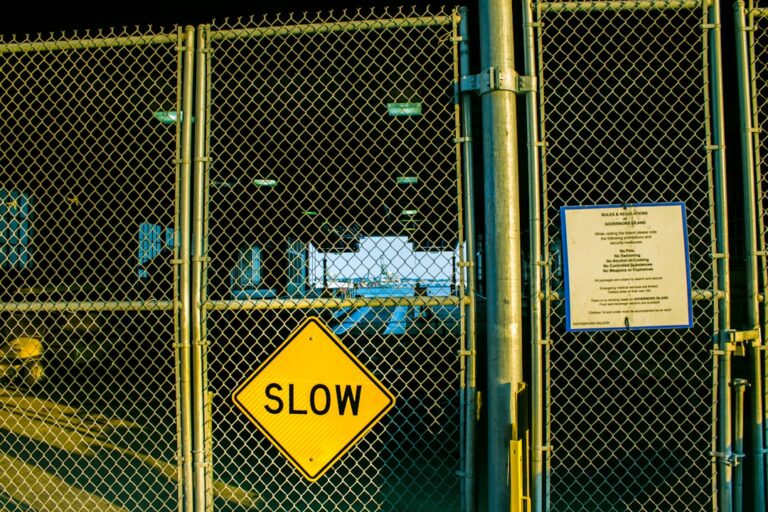Clogged drains are a common household issue that can lead to significant inconvenience and potential damage if not addressed promptly. The causes of these blockages can vary widely, but they often stem from the accumulation of debris over time. In kitchens, food particles, grease, and soap scum can build up in pipes, creating a thick sludge that restricts water flow.
Similarly, in bathrooms, hair, soap residue, and personal hygiene products can combine to form stubborn clogs. Understanding these causes is crucial for homeowners who wish to prevent future plumbing issues. Another significant contributor to clogged drains is the presence of foreign objects that inadvertently find their way into the plumbing system.
Items such as cotton swabs, dental floss, and even small toys can cause blockages that disrupt the normal flow of water. Additionally, tree roots can infiltrate underground pipes, leading to severe obstructions that require professional intervention. By recognizing these common culprits, individuals can take proactive steps to mitigate the risk of clogs in their homes.
Key Takeaways
- Clogged drains can be caused by a buildup of hair, grease, food particles, and other debris
- Prevent clogged drains by using drain guards, avoiding pouring grease down the drain, and regularly cleaning drains
- DIY methods for clearing clogged drains include using a plunger, drain snake, or baking soda and vinegar solution
- Natural remedies like baking soda, vinegar, and hot water can help unclog drains without harsh chemicals
- Call a professional plumber if DIY methods fail, there is a foul odor, or multiple drains are clogged
Preventative measures to avoid clogged drains
Kitchen Habits
In the kitchen, homeowners should be mindful of what goes down the sink. Avoiding the disposal of grease, coffee grounds, and fibrous foods can significantly reduce the likelihood of blockages. Instead of rinsing these items down the drain, they should be disposed of in the trash or composted when possible. Regularly cleaning the sink and using a drain strainer can also help catch debris before it enters the plumbing system.
Bathroom Precautions
In bathrooms, implementing a few straightforward practices can go a long way in preventing clogs. Installing hair catchers in shower drains can effectively trap hair and prevent it from accumulating in pipes. Additionally, educating family members about what can and cannot be flushed down the toilet is essential. Items like wipes, feminine hygiene products, and paper towels should always be disposed of in the trash rather than flushed away.
Responsibility and Awareness
By fostering awareness and responsibility regarding waste disposal, households can significantly reduce the risk of clogged drains.
DIY methods for clearing clogged drains

When faced with a clogged drain, many homeowners may first consider tackling the problem themselves before calling in a professional. There are several effective DIY methods that can be employed to clear minor blockages without resorting to harsh chemicals. One popular technique involves using a plunger, which can create suction to dislodge clogs in sinks and toilets.
By covering any overflow openings and plunging vigorously, individuals may find success in restoring proper drainage. Another effective DIY method is the use of a plumbing snake or auger. This tool is designed to reach deep into pipes and break apart stubborn clogs that are not easily accessible.
By inserting the snake into the drain and rotating it, homeowners can dislodge debris and restore water flow. Additionally, a mixture of baking soda and vinegar can serve as a natural alternative to chemical drain cleaners. When combined, these ingredients create a fizzing reaction that can help break down buildup within pipes.
Following up with hot water can further flush away any remaining debris.
Using natural remedies to unclog drains
| Method | Effectiveness | Cost | Time |
|---|---|---|---|
| Baking Soda and Vinegar | High | Low | 30 minutes |
| Boiling Water | Low | Low | 10 minutes |
| Salt and Hot Water | Medium | Low | 20 minutes |
For those who prefer eco-friendly solutions, natural remedies can be an effective way to unclog drains without resorting to harsh chemicals. One of the most popular natural methods involves using baking soda and vinegar, which not only helps clear clogs but also deodorizes drains. To use this method, one should pour half a cup of baking soda down the drain followed by half a cup of vinegar.
After allowing the mixture to sit for about 30 minutes, flushing the drain with hot water can help wash away any loosened debris. Another natural remedy involves using salt and boiling water. By pouring a generous amount of salt down the drain followed by boiling water, homeowners can help dissolve grease and other buildup that may be causing a blockage.
This method is particularly effective for kitchen sinks where grease accumulation is common. Regularly using these natural remedies as part of a maintenance routine can help keep drains clear and functioning properly.
When to call a professional plumber
While many minor clogs can be resolved through DIY methods or natural remedies, there are times when it becomes necessary to call in a professional plumber. If a homeowner has attempted various methods without success or if multiple drains in the home are experiencing issues simultaneously, it may indicate a more serious underlying problem within the plumbing system. Professional plumbers have the expertise and specialized equipment to diagnose and address complex issues that may not be apparent to the average homeowner.
Additionally, if there are signs of water damage or persistent foul odors emanating from drains, it is crucial to seek professional assistance promptly. These symptoms could indicate a more significant problem such as pipe corrosion or sewer line issues that require immediate attention. Ignoring these signs can lead to costly repairs down the line, making it essential for homeowners to recognize when it is time to enlist the help of an expert.
How to maintain clean and clear drains

Maintaining clean and clear drains requires consistent effort and attention from homeowners. One effective strategy is to establish a regular cleaning schedule for all drains in the home. This could involve monthly maintenance tasks such as pouring boiling water down sinks and tubs or using natural remedies like baking soda and vinegar on a routine basis.
By incorporating these practices into regular household chores, individuals can prevent buildup before it becomes problematic. In addition to regular cleaning, homeowners should also be vigilant about what goes down their drains. Educating family members about proper disposal methods and encouraging them to be mindful of what they flush or rinse away can significantly reduce the risk of clogs.
Furthermore, periodic inspections of plumbing fixtures and pipes for signs of wear or damage can help catch potential issues early on, allowing for timely repairs before they escalate into more significant problems.
Dealing with slow drains in the kitchen
Slow drains in the kitchen can be particularly frustrating, especially when preparing meals or cleaning up after cooking. One common cause of slow drainage in kitchen sinks is grease buildup from cooking oils and fats that solidify within pipes over time. To address this issue, homeowners should consider implementing preventive measures such as using a grease trap or regularly flushing drains with hot water to help dissolve any accumulated grease.
If a kitchen sink is already experiencing slow drainage, there are several DIY methods that can be employed to alleviate the problem. Using a plunger can create suction that may dislodge minor clogs caused by food particles or grease buildup. Alternatively, employing a plumbing snake can help reach deeper blockages that are not easily accessible through conventional means.
For persistent issues, it may be necessary to consult with a professional plumber who can assess the situation and provide targeted solutions.
Dealing with slow drains in the bathroom
Slow drains in bathrooms are often attributed to hair accumulation and soap scum buildup within pipes. Showers and sinks are particularly susceptible to these types of clogs due to regular use and the nature of personal care products that often contain oils and waxes. To combat slow drainage in bathrooms, homeowners should consider installing hair catchers in shower drains to prevent hair from entering pipes in the first place.
When faced with slow bathroom drains, individuals can utilize several DIY techniques to clear blockages effectively. A mixture of baking soda and vinegar can work wonders in breaking down soap scum and hair clogs when poured down the drain followed by hot water. Additionally, using a plumbing snake can help remove stubborn clogs that may be lodged deeper within pipes.
If these methods fail to resolve the issue or if multiple bathroom fixtures are affected, seeking professional assistance may be necessary to ensure proper drainage throughout the home. In conclusion, understanding the causes of clogged drains and implementing preventative measures can significantly reduce plumbing issues in households. By adopting simple habits for waste disposal and utilizing effective DIY methods for clearing clogs, homeowners can maintain clean and functional drainage systems.
However, recognizing when to call a professional plumber is equally important for addressing more complex problems that may arise over time. With consistent maintenance and awareness, individuals can enjoy hassle-free plumbing in their homes for years to come.
If you’re dealing with clogged or slow drains in your home, you may want to check out this article on the holistic benefits of education. Just like how education can provide a comprehensive guide to knowledge, understanding the root causes of drain issues can help you effectively address and prevent them in the future. By learning more about the importance of education and knowledge, you can also gain a better understanding of how to maintain a healthy and functional plumbing system.
FAQs
What causes clogged or slow drains?
Clogged or slow drains can be caused by a buildup of hair, soap scum, food particles, grease, or other debris that accumulates in the pipes over time.
How can I prevent clogged or slow drains?
To prevent clogged or slow drains, you can use drain strainers to catch hair and food particles, avoid pouring grease down the drain, and regularly clean your drains with a mixture of baking soda and vinegar.
What are some DIY methods for unclogging drains?
Some DIY methods for unclogging drains include using a plunger, a drain snake, or a mixture of baking soda and vinegar to break up and remove the clog.
When should I call a professional for help with clogged or slow drains?
You should call a professional for help with clogged or slow drains if DIY methods are not effective, if you have a recurring clog, or if you suspect a more serious issue such as a tree root intrusion or a damaged pipe.






